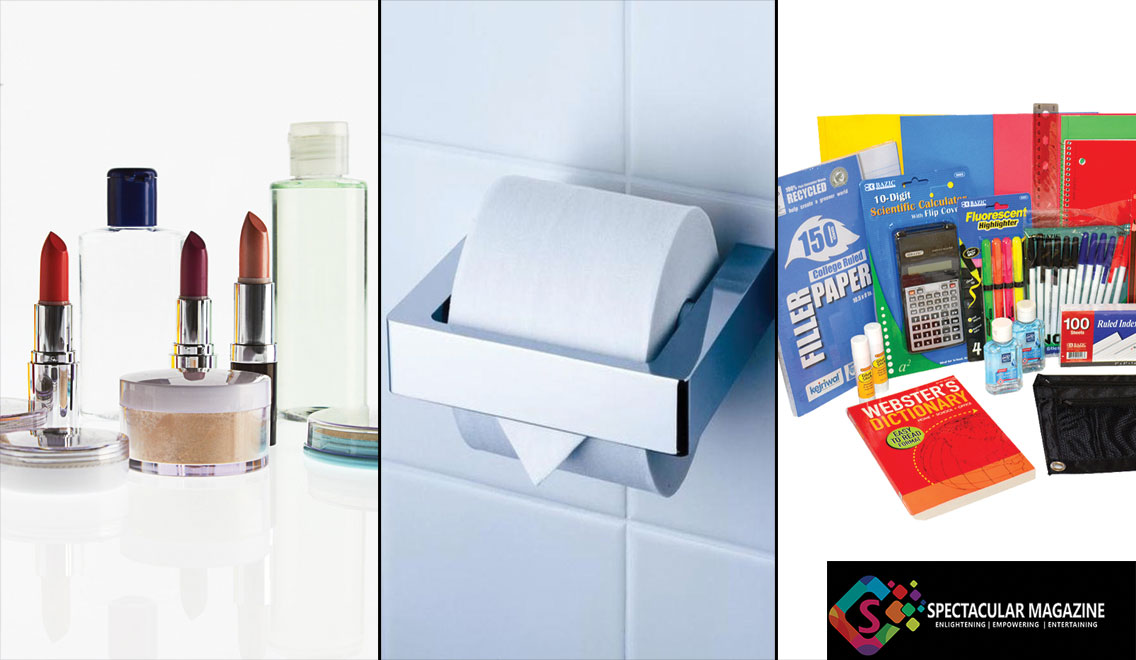Trump’s New Tariffs Will Be Felt By U.S. Women Buying Beauty Products, Toilet Paper, School Supplies
The latest round of tariffs to be proposed in the U.S.-China trade war — $200 billion worth — is a massive escalation in the retaliatory levies the countries have been throwing at each other this year. But it looks like American women are going to be the biggest losers.
This enormous third wave of tariffs by the Trump administration — new ones go into effect next week — is a significant break from decades of increased coordination between China and the U.S. It also follows $34 billion in tariffs that went into effect in July and a second, $16 billion round that went into effect in mid-August.
“Increasing the size of the tariffs is merely increasing the harm that will be done,” Matthew Shay, president and CEO of the National Retail Foundation, said in a statement in August.
The third round is different not only because of its size — five times more punitive, financially speaking — but also because it directly targets imports of consumer goods. Experts say the tariffs will hit the consumer in the pocketbook as manufacturers pass the burden on to consumers through higher costs on items such as clothing, household appliances and even toys. The National Retail Federation (NRF) estimates that the plan could cost the average American family $1,700 in the first year alone.
American women will be hit hardest for several reasons:
The Trump Tax Hits Items Used Primarily By Women
Round three includes many products that are used more by women than men, including pocketbooks, beauty products and even toilet paper. That’s right. As a matter of hygiene, women use five times more toilet paper than men, according to a study funded by the Scott Paper Company. So you can add the “Trump Tax” to the “Pink Tax” women already pay (7 percent, according to studies like this one from New York City’s Department of Consumer Affairs) for products marketed to girls and women.
As part of her testimony against this third round of tariffs, Hun Quach, the vice president for international trade at the Retail Industry Leaders Association, a trade association that represents the world’s largest retail companies, described the tariffs as an anti-consumer tax. She called it “a baby tax … a getting ready in the morning tax … a pet tax… a fruit tax … a school lunch tax [and a] … a backpack tax.” She pointed out how it’s a “tax on keeping warm,” with parkas, scarves, hats, earmuffs and caps also listed.
“Parents will pay more for school supplies,” says Quach, with paint, glue sticks, binders, plastic rulers, tape measures, fabric, even calculators targeted. “And teachers too. [It] is a back-to-school teacher tax.” According to the U.S. Department of Education, a whopping 94 percent of teachers — a profession in which 77 percent in the U.S. are women — spend their own money on school supplies.
There Are More Women
According to the U.S. census, there are 7 million more women than men in the population. Basic math means women will take on more of this new economic burden. Also, the Tax Foundation speculates that if manufacturers are unable to pass increased costs on to consumers through higher prices alone, they’ll simply take them out of their profits by offering lower hiring salaries and fewer raises. Remember, women are already making less than men, earning 80.5 cents on the dollar and pulling in median annual earnings that are $10,000 less than men’s, according to the U.S. Census Bureau.
There Are More Women-Only Households
Nearly a quarter of all U.S. households are helmed by women, and women only — 23 percent, according to the U.S. census, compared to the 2.5 percent helmed solely by men. More women than men are the sole supporters of their families, spending their lower paychecks (on average) to buy products needed to maintain a household and raise children (and take care of aging parents, which they do more of too, according to the Family Caregiver Alliance).
A wide range of children’s items can be found on President Trump’s tax list, including backpacks and bicycles (along with $28 billion worth of toys), household items such as chairs and sofas, and hundreds of food items, including fish sticks.
“These tariffs threaten to increase costs for American families and destroy the livelihoods of U.S. workers,” said Jonathan Gold, NRF vice president for supply chain and customs policy. “The collateral damage to wide swaths of the U.S. economy will be significant.”
It may not be as obvious as blatant misogyny or abuse, but this Trump Tax will, without a doubt, harm women and children.


